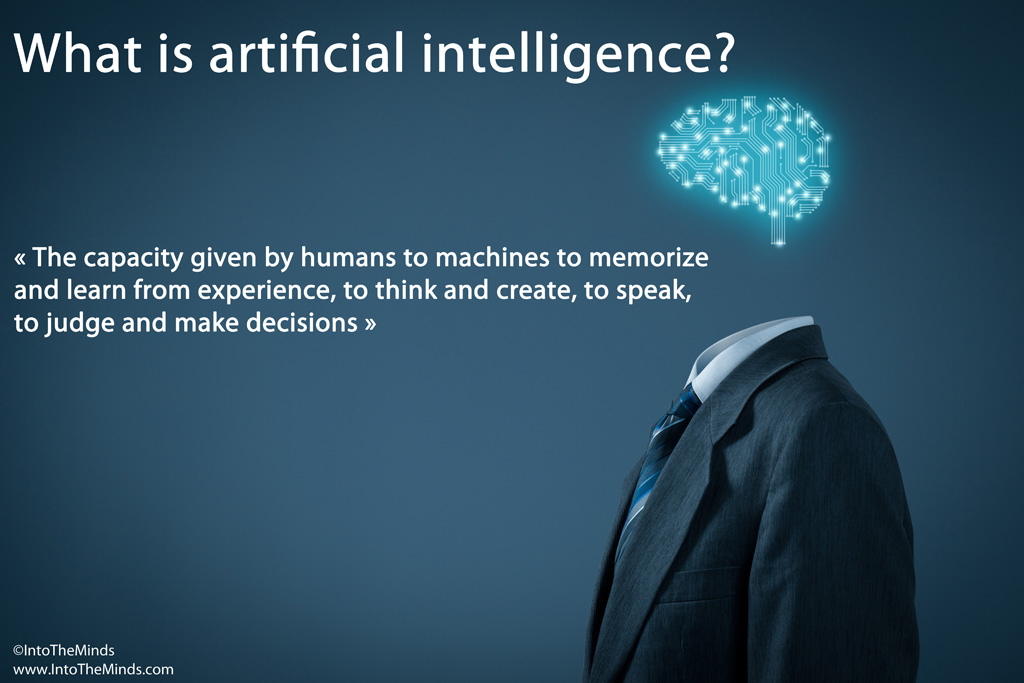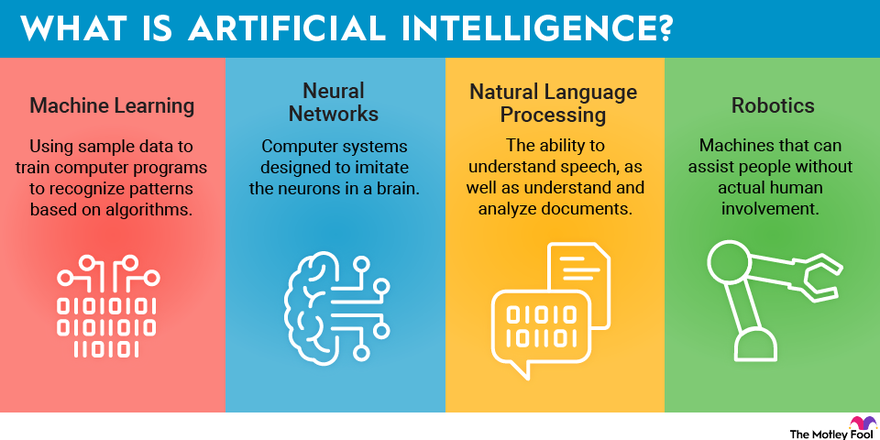Artificial Intelligence (AI) refers to the simulation of human intelligence in machines. These machines can perform tasks that typically require human intelligence.
Artificial Intelligence is revolutionizing various industries. It encompasses machine learning, natural language processing, and robotics. AI systems learn from data, identify patterns, and make decisions. Businesses use AI to enhance customer experiences and streamline operations. Healthcare, finance, and retail are seeing significant benefits from AI applications.
AI-powered chatbots provide customer support and personalized recommendations. Self-driving cars are another remarkable AI innovation. AI continues to evolve, promising even more advancements. Understanding AI’s potential helps businesses stay competitive. Investing in AI can drive growth and innovation. Embrace AI to harness its transformative power.
Types Of Ai
Artificial Intelligence (AI) is a fascinating field with many types. These types help us understand the capabilities and limitations of AI. Let’s dive into the three main types of AI.
Narrow Ai
Narrow AI, also known as Weak AI, is the most common type today. It is designed to perform a specific task. Examples include voice assistants like Siri and Alexa. Narrow AI excels in one area but lacks general intelligence. It cannot perform tasks outside its programming.
General Ai
General AI, or Strong AI, aims to mimic human intelligence. It can understand, learn, and apply knowledge in different areas. Think of it as a machine that can perform any intellectual task a human can. General AI is still theoretical and not yet developed.
Superintelligent Ai
Superintelligent AI surpasses human intelligence in all aspects. It can solve complex problems and think creatively. This type of AI exists only in theories and science fiction. If developed, it could bring significant advancements, but also risks.
| Type of AI | Capabilities | Examples |
|---|---|---|
| Narrow AI | Performs specific tasks | Siri, Alexa |
| General AI | Mimics human intelligence | Not yet developed |
| Superintelligent AI | Surpasses human intelligence | Theoretical |

Credit: incubator.ucf.edu
Ai Technologies
Artificial Intelligence (AI) encompasses a variety of cutting-edge technologies. These technologies enable machines to perform tasks that typically require human intelligence. Let’s delve into the core AI technologies.
Machine Learning
Machine Learning (ML) is a subset of AI. It focuses on training computers to learn from data. Algorithms identify patterns in data and make decisions based on these patterns. ML is widely used in recommendation systems, fraud detection, and image recognition.
Neural Networks
Neural Networks mimic the human brain’s structure. They consist of layers of interconnected nodes, or “neurons.” These networks process data in a way similar to the human brain. Neural networks are essential for deep learning applications. They excel in image and speech recognition tasks.
Natural Language Processing
Natural Language Processing (NLP) enables computers to understand and respond to human language. NLP powers chatbots, language translation services, and voice-activated assistants. It involves techniques like tokenization, sentiment analysis, and entity recognition.
Here is a table summarizing these core AI technologies:
| Technology | Description | Applications |
|---|---|---|
| Machine Learning | Algorithms learn from data to make decisions. | Recommendation systems, fraud detection, image recognition. |
| Neural Networks | Networks of nodes mimicking the human brain. | Deep learning, image and speech recognition. |
| Natural Language Processing | Understanding and responding to human language. | Chatbots, translation services, voice assistants. |
Ai In Daily Life
Artificial Intelligence (AI) is now part of our daily lives. It enhances our experiences, making tasks easier and more efficient. From smart assistants to autonomous vehicles, AI is everywhere.
Smart Assistants
Smart assistants like Siri, Alexa, and Google Assistant use AI to help us daily. They can set reminders, answer questions, and control smart home devices.
- Siri can send texts and make calls.
- Alexa can play music and manage shopping lists.
- Google Assistant can provide weather updates and search the web.
These assistants learn from our interactions to improve their responses.
Recommendation Systems
Recommendation systems suggest products, movies, and music based on our preferences. They use AI to analyze our behavior and likes.
| Platform | Recommendation Type |
|---|---|
| Netflix | Movies and TV shows |
| Amazon | Products |
| Spotify | Music |
These systems enhance our experience by suggesting what we might like.
Autonomous Vehicles
Autonomous vehicles use AI to drive without human intervention. They can navigate, avoid obstacles, and follow traffic rules.
- Tesla produces self-driving cars.
- Waymo develops autonomous taxis.
- Uber is working on self-driving ride-sharing services.
AI in vehicles improves safety and reduces traffic accidents.

Credit: www.intotheminds.com
Ai In Healthcare
Artificial Intelligence (AI) is transforming the healthcare industry. It improves patient care, speeds up diagnosis, and helps doctors make better decisions. Here are some ways AI is changing healthcare.
Medical Imaging
AI helps doctors read medical images. It can detect diseases early. This includes cancer, heart disease, and brain conditions. AI can analyze X-rays, MRIs, and CT scans. It identifies patterns that humans may miss. This leads to quicker and more accurate diagnosis.
- Early disease detection
- Better image analysis
- Accurate diagnosis
Personalized Medicine
AI tailors treatments to individual patients. It looks at genetic information, lifestyle, and environment. This helps doctors choose the best treatment plan. AI can predict how patients will respond to treatments. This leads to better outcomes and fewer side effects.
| Feature | Benefit |
|---|---|
| Genetic Analysis | Customized treatments |
| Predictive Models | Better outcomes |
| Data Integration | Comprehensive care |
Robotic Surgery
AI powers robotic surgery systems. These robots assist surgeons during operations. They provide precision and control. This reduces the risk of errors. Robotic surgery means smaller incisions and quicker recovery times. Patients experience less pain and shorter hospital stays.
- Enhanced precision
- Fewer surgical errors
- Quick recovery
AI is revolutionizing healthcare. It enhances patient care and improves outcomes. AI in healthcare is a game-changer.
Ethical Considerations
Artificial Intelligence (AI) is transforming our world. Yet, it brings ethical questions. These questions touch on fairness, privacy, and job security.
Bias And Fairness
AI systems can sometimes show bias. These biases come from the data they learn from. If the data is biased, the AI will be too. For example, facial recognition can be less accurate for certain races. This is because the training data had fewer images of those races.
Ensuring fairness in AI is critical. Developers must use diverse data. They should test their systems for bias. This helps create fairer and more accurate AI.
Privacy Concerns
AI often uses large amounts of data. This data can include personal information. There are risks if this data is not protected. Hackers could steal it. Companies might misuse it.
Protecting privacy is essential. Developers must follow strict rules. They should use encryption to safeguard data. Users should know how their data is used.
Job Displacement
AI can do many tasks that humans do. This can lead to job loss. For example, self-driving cars could replace taxi drivers. Automated systems could replace factory workers.
But AI also creates new jobs. People need to adapt to these changes. Training programs can help workers learn new skills. This can help reduce the impact of job displacement.
Future Prospects
The future of Artificial Intelligence (AI) holds immense potential. AI promises to revolutionize various fields, enhancing human capabilities and pushing the boundaries of what we can achieve. From creativity to space exploration, AI is set to play a crucial role in shaping our future.
Ai And Creativity
AI is not just about data and numbers. It has begun to make strides in the creative fields. AI-generated art, music, and literature are gaining popularity. AI can analyze vast amounts of data to create new and unique pieces. This opens up new possibilities for artists and creators.
AI tools can assist in the creative process. They can generate ideas, offer suggestions, and even produce entire works. This collaboration between humans and AI can lead to more innovative and diverse creations.
Ai In Space Exploration
AI is essential for exploring the vastness of space. AI-powered robots and probes can travel to distant planets. They can collect and analyze data, making space missions more efficient. AI can also predict and mitigate risks, ensuring the safety of space missions.
AI assists in the analysis of astronomical data. It helps scientists identify patterns and make new discoveries. This accelerates our understanding of the universe and our place within it.
Human-ai Collaboration
AI is designed to work alongside humans. This collaboration can lead to better outcomes in various fields. In healthcare, AI can analyze medical data to assist doctors. In education, AI can provide personalized learning experiences for students.
AI can handle repetitive tasks, freeing up humans to focus on more complex issues. This partnership can lead to increased productivity and innovation. The future of AI lies in its ability to enhance human abilities, not replace them.

Credit: www.fool.com
Frequently Asked Questions
What Is Artificial Intelligence?
Artificial Intelligence (AI) is the simulation of human intelligence in machines. These machines are programmed to think and learn like humans. AI performs tasks such as problem-solving, decision-making, and language translation.
How Does Ai Work?
AI works by using algorithms and data. Algorithms process data to make decisions or predictions. Machine learning, a subset of AI, allows systems to learn from data and improve over time.
What Are The Types Of Ai?
There are three types of AI: Narrow AI, General AI, and Superintelligent AI. Narrow AI is specialized for specific tasks. General AI can perform any intellectual task like a human. Superintelligent AI surpasses human intelligence.
Why Is Ai Important?
AI is important because it enhances efficiency and accuracy. It automates routine tasks and provides insights through data analysis. AI innovations drive advancements in various fields like healthcare, finance, and transportation.
Conclusion
Artificial Intelligence is transforming various industries and our daily lives. Its capabilities are expanding rapidly. Understanding AI helps us navigate its impacts better. Embracing AI can lead to incredible advancements. Stay informed and explore AI’s potential to stay ahead in this evolving field.



